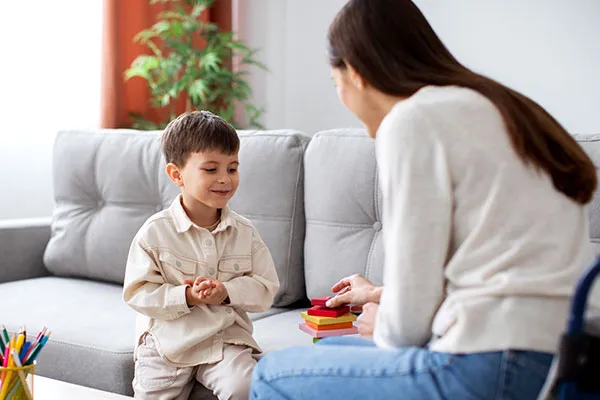


Many children struggle with attention or impulsiveness occasionally. But for some, these difficulties are persistent, significantly affecting their school performance, self-esteem, and social relationships. At Kriteyu Health Care, we offer compassionate, evidence-based care for children living with Attention-Deficit/Hyperactivity Disorder (ADHD), helping them better understand themselves and thrive in their everyday environments.
ADHD is a neurodevelopmental condition that affects a child's ability to focus, manage impulses, and regulate activity levels. It is not caused by bad parenting or lack of discipline but involves a complex interaction of brain development, environment, and genetics.
Common signs of Childhood ADHD include:
These challenges can lead to academic struggles, low confidence, and strained relationships, making early identification and intervention crucial.
With timely support, children with ADHD can learn to navigate their challenges and build on their strengths. Addressing ADHD early helps prevent long-term academic, emotional, and behavioural consequences.
Early intervention can help children:
Every child deserves an understanding of their challenges, not just a diagnosis. Our assessment and treatment plans are tailored to each child's age, needs, and personality.
We believe every child deserves an understanding of their challenges, not just a diagnosis. Our assessment and treatment plans are tailored to each child's age, needs, and personality.
Treatment for Childhood ADHD may include:

We customise every care plan to suit your child's developmental stage, personality, and specific challenges.
Our collaborative approach includes parents and teachers to create a consistent and supportive environment.

Led by Dr. Krishna Thalagavara, our team combines clinical expertise with compassion, offering trusted ADHD support in Bangalore.
If your child is struggling with attention, impulsivity, or hyperactivity, don't wait. Let's work together to unlock their potential with personalised care.
A thorough evaluation that includes clinical interviews, behavioural observations, and input from parents and teachers is used to diagnose ADHD.
No. Many children benefit from behavioural strategies and parent training alone. Medication is considered only if symptoms are severe and affects a child's learning and behaviours.
Untreated ADHD can lead to difficulties with attention, organisation, and task completion. With the right support, children can do well in school.
We offer guidance on managing behavioural challenges, improving communication, and advocating for your child in academic settings.
Some children see a reduction in symptoms as they grow, but many continue to experience challenges into adolescence or adulthood. Early intervention can make a lasting difference.